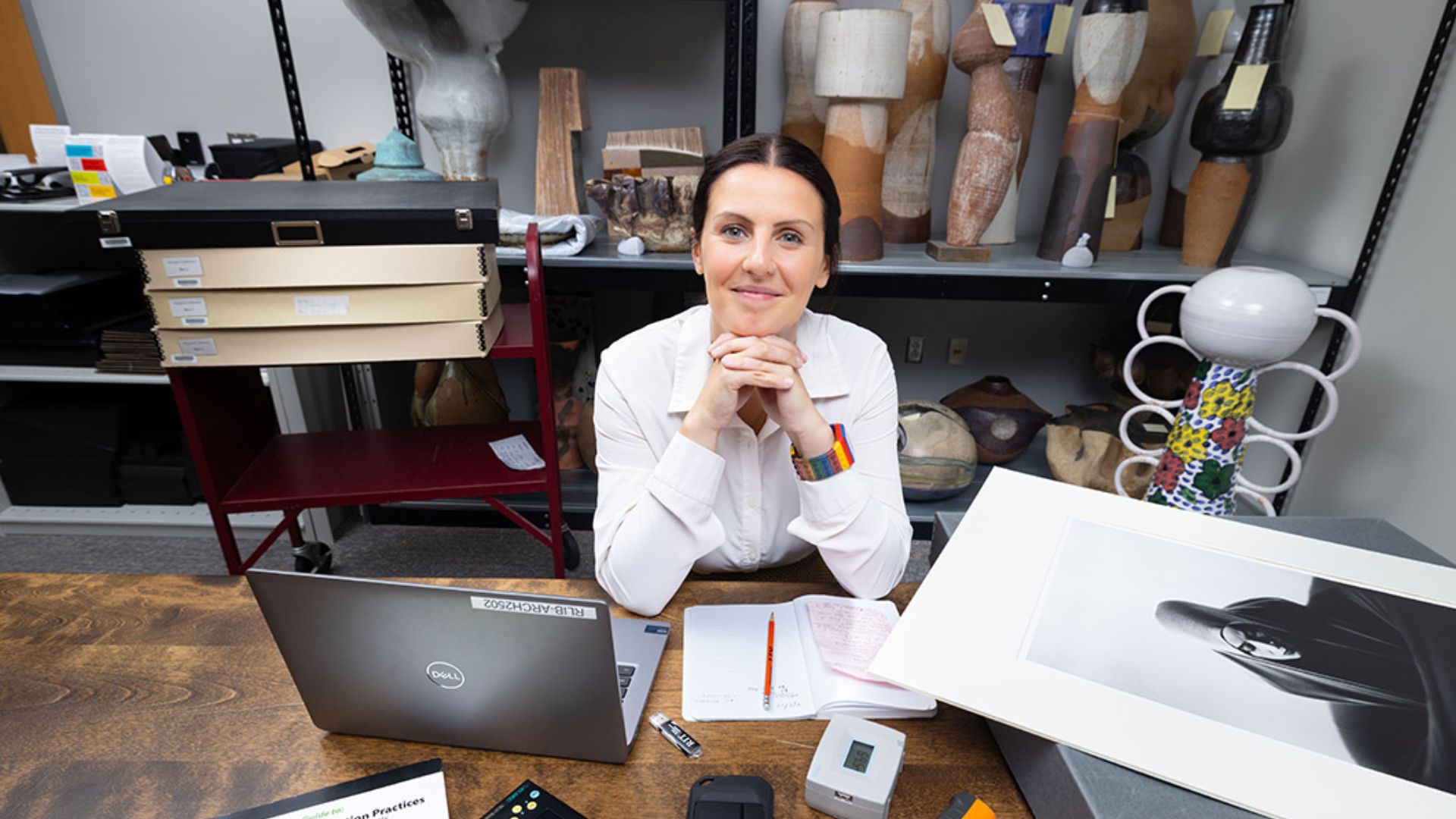Local News
RIT preservation specialist leads global effort to help museums and archives embrace sustainable environmental management practices

Rochester, New York – In an era when climate change and energy efficiency dominate global conversations, the challenge of maintaining delicate museum, library, and archive collections has taken on new urgency. For these institutions, the need to protect fragile materials—often in tightly controlled temperature and humidity environments—can seem at odds with the goals of sustainability. Yet, experts at Rochester Institute of Technology’s Image Permanence Institute (IPI) are proving that conservation and environmental responsibility can go hand in hand.
At the forefront of this effort is Emily Bernal, IPI’s sustainable preservation specialist, who works with cultural heritage institutions to adopt smarter, more eco-conscious approaches to managing their preservation environments. Her role bridges science and art, helping curators, archivists, and facility managers understand how to maintain preservation standards while reducing energy consumption and environmental impact.
“I think sustainability should be part of the conversation for anything that we do in this field,” said Bernal. “I feel lucky to act as a bridge between the fields of environmental science, the social sciences, and humanities in this role. What I’m doing is still a little unique, but I’m hoping that we’ll see more positions like mine in the future.”
Bernal’s work—and IPI’s broader mission—received a significant boost recently when the institute was selected to join the Getty Global Art and Sustainability Fellows program, a new international initiative designed to connect professionals tackling climate resiliency in the arts and cultural preservation fields. Only fifteen organizations worldwide were invited to participate in the inaugural year of the program, spanning six continents. IPI stands proudly among this small and elite group—and is one of only two U.S.-based institutions selected.
According to the Getty Foundation, the purpose of the Global Fellows program is to empower professionals and organizations “at the forefront of international conversations on climate resiliency.” Each of the participating institutions has demonstrated leadership in advancing sustainable methods for preserving art, artifacts, and historical materials.
“Our goal with the Getty Global Fellows program is to create a network of changemakers working to protect collections, buildings, and sites in the face of accelerating climate change,” said Joan Weinstein, director of the Getty Foundation. “IPI’s excellence and international reputation in providing accessible tools and training in cultural preservation makes them an essential and welcome addition to the Getty Global cohort.”
The partnership will fund a series of three two-year fellowships at IPI over the next six years. Bernal, who will serve as IPI’s first fellow, plans to use this opportunity to expand her research and develop new resources that will make sustainability easier and more attainable for collecting institutions around the world.
For IPI Executive Director Jennifer Jae Gutierrez, the Getty selection marks both a professional and symbolic milestone. “When we saw the other recipients, it was surprising to see quite a wide breadth of institutions represented. IPI being part of that cohort demonstrates the value of our work now, and the work that we’ve done for decades. It acknowledges that the resources we create have really made a difference,” Gutierrez said.
Indeed, IPI’s impact on the preservation community is already well established. The institute’s widely used eClimate Notebook software has become an essential tool for institutions managing the environmental conditions of their collections. The software enables professionals to analyze, interpret, and optimize climate data to maintain both preservation standards and energy efficiency.
Bernal’s work with eClimate Notebook and her consulting role for collecting institutions focus on helping them strike that delicate balance. Her research examines both mechanical operations—like HVAC systems—and passive methods of environmental control, looking for ways to lower energy use without compromising the safety of cultural materials.
Support from the Getty fellowship program will allow Bernal to deepen this research, particularly through the creation of resource guides that demonstrate the financial, environmental, and preservation-related benefits of sustainable management.
“A big selling point we lean into is that, in many instances, when institutions achieve these sustainability goals, they can have the same preservation outcomes, or even better preservation outcomes, while also lowering energy use and the cost associated to maintaining these environments,” she said.
Beyond developing new resources, Bernal also hopes to use her fellowship to highlight success stories—institutions that have already made measurable progress in sustainable preservation. She believes showcasing these examples will inspire others to take action, even if they start small.
“I really want other institutions to see themselves reflected in these publications. I hope they can read the success stories of similar institutions and be inspired to think, ‘even if I can’t follow all of these guidelines, I think I can make some changes now that I’ve seen how they’ve done it elsewhere,’” she said.
Her optimism reflects a larger cultural shift happening across the field. As more heritage organizations recognize the urgent need to reduce their environmental footprint, professionals like Bernal are showing that sustainability and preservation can reinforce, not contradict, each other.
Through her research, collaboration, and commitment, Bernal exemplifies how science and the arts can intersect for global good. With the backing of the Getty Foundation and the long-standing expertise of IPI, she and her colleagues are paving the way for a future where protecting history also means protecting the planet.
As IPI continues its decades-long mission to support cultural institutions worldwide, Bernal’s work ensures that sustainability becomes not just a trend, but a fundamental part of how preservation is practiced in the 21st century.

-

 Local News12 months ago
Local News12 months agoNew ALDI store close to Rochester to begin construction in late 2025 or early 2026
-

 Local News12 months ago
Local News12 months agoRochester Lilac Festival announces exciting 127th edition headliners
-

 Local News10 months ago
Local News10 months agoCounty Executive Adam Bello and members of the county legislature celebrate exceptional young leaders and advocates at the 2025 Monroe County Youth Awards
-

 Local News10 months ago
Local News10 months agoThe 2025 Public Market Food Truck Rodeo series will begin this Wednesday with live music by the Royal Bromleys